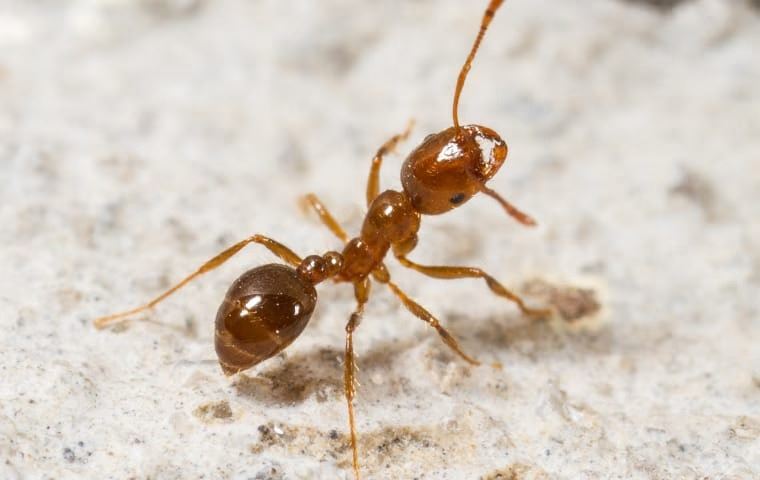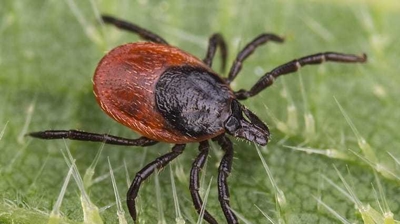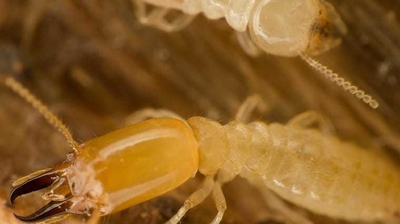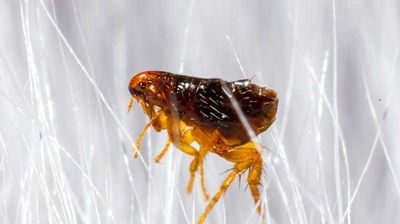
Fire Ants Identification & Prevention
Frequently Asked Questions about Fire Ants
Have questions? We are here to help. Still have questions or can't find the answer you need? Give us a call at 252-424-7966 today!

-
How can I prevent fire ants in the future?
Fire ants are not just a nuisance; they pose potential health risks and are capable of damaging property.
- Avoid problems with fire ants with the help of the following prevention tips.
- Use a caulking gun to seal spaces in the foundation or exterior walls of your house.
- Place door sweeps on exterior doors.
- Place tight-fitting lids on outdoor trash cans or compost bins.
- Do not overwater your lawn.
- Place a stone barrier between any soil and your foundation.
- Do not delay seeking help against these dangerous pests. Contact Albemarle Termite & Pest Control.
-
How do I get rid of fire ants?
Acquiring help from a professional pest control expert is the best way to eliminate fire ants and keep them from returning. At Albemarle Termite & Pest Control, our technicians are highly trained and dedicated to providing safe and effective home pest control services that are affordable. We are a local, family-owned pest control company whose number one priority is putting our customers first and exceeding expectations. For home or business owners looking to eliminate pests from their property once and for all, call Albemarle Termite & Pest Control today!
-
Where will I find fire ants?Fire ants seek out open sunny locations to build their nests. They do not like to live in shady or wooded areas. Along with placing their nests in the middle of open grassy areas, they build them in the soil near foundations, along fence lines, and along rivers, ponds, and streams. Fire ants are not usually indoor pests, but those that place their nests close to a home or other building may find their way inside through spaces around air-conditioning units or cracks in the foundation.
-
Why do I have a fire ant problem?
Like other species of ants, fire ants look for properties that offer them suitable food sources and nesting spots. Unfortunately, fire ants prefer to nest in open sunny areas, making residential yards, parks, and athletic fields the perfect places for these dangerous ants. Fire ants are omnivores and have varied diets. Trash cans, gardens, and compost piles all are places where these ants gather food for their colonies.
While fire ants will make their way onto any property on their own, they also sometimes hitchhike their way into a yard in new sod, trees, flowers, and plants purchased from a plant nursery or retail garden store.
-
Are fire ants dangerous?
Fire ants are extremely dangerous. They will attack any person or animal that comes too close to their nesting mound. Since fire ants attack in a group, they can deliver a large amount of venom to the person or animal they attack. Their venom is strong enough to trigger allergic reactions and, in some people, life-threatening anaphylaxis.
Along with the health threats associated with fire ants, they cause damage to farm crops, garden plants, and young plants. They are drawn to electrical equipment and cause damage to air-conditioners, farm equipment, and circuit breakers.
-
What are fire ants?Fire ants are an aggressive species of ant that is capable of delivering multiple, painful, burning stings. These small ants are a reddish-brown to reddish-black color. Fire ants have strong mandibles they use to hold onto the skin of their victims then use the stinger extending from their backend to deliver venom, paralyzing their prey. You can identify fire ants by their distinctive nesting mounds that have a flattened and irregular shape. They are usually 2-4 feet in size and located in wide-open areas.



